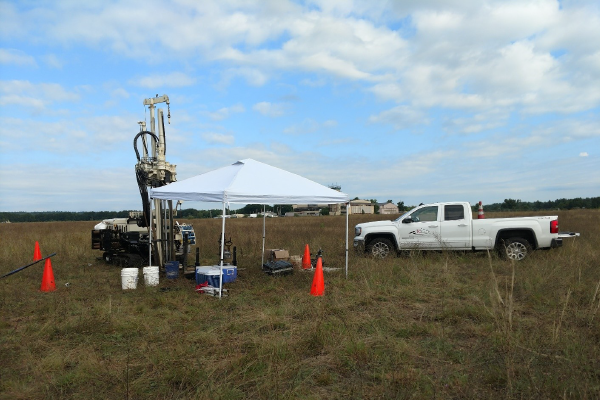PFAS Investigations at the Former Fort Devens Army Installation, MA, USACE – New England District
KGS/Trinity investigated the presence, nature, and extent of PFAS contamination through multiple phases of the CERCLA process at the Former Fort Devens Army Installation and Sudbury Training Annex. KGS/Trinity initially completed Preliminary Assessments (PA) to assess the potential for onsite PFAS impacts, including limited PFAS sampling of existing onsite monitoring wells and onsite and offsite municipal drinking water wells. Based on the potential for PFAS releases identified in the PAs, more extensive Site Inspection (SI) sampling was completed. At Devens, several releases of PFAS had occurred at multiple sites, requiring more extensive delineation and assessment of exposure risks in a Remedial Investigation (RI). KGS/Trinity prepared an RI Work Plan for Devens, including a Uniform Federal Policy for Quality Assurance Project Plan (UFP-QAPP), Field Sampling Plans (FSP), and a Risk Assessment Work Plan, to assess PFAS at 20 sites with known releases of PFAS from historic firefighting, firefighting training, firefighting foam storage, vehicle maintenance, landfill/waste disposal, and wastewater treatment activities.
The field investigations included sampling and analyses of over 200 existing monitoring wells and 200 private/ municipal drinking water wells; 70 surface water and sediment samples; 240 groundwater vertical profile locations including 2,000 water samples; 250 soil boring samples; and installation of 100 piezometers, overburden MWs, and bedrock MWs. KGS/Trinity employed a variety of drilling methodologies during this investigation including direct- push, drive and wash, and sonic. Analytical results were loaded immediately to the Devens database, providing real-time interactive access to all data by stakeholders, facilitating timely adjustments to the field investigations. KGS/Trinity used innovative PFAS analytical techniques including Total Oxidizable Precursor (TOP) assay and branched and linear isomers analysis to support forensic analysis of PFAS sources, and fate and transport evaluation. KGS/Trinity prepared a Community Involvement Plan (CIP) to facilitate communication of PFAS-related information with community members. KGS/Trinity prepared and presented technical information in support of technical meetings with regulatory agencies and also for public meetings.

